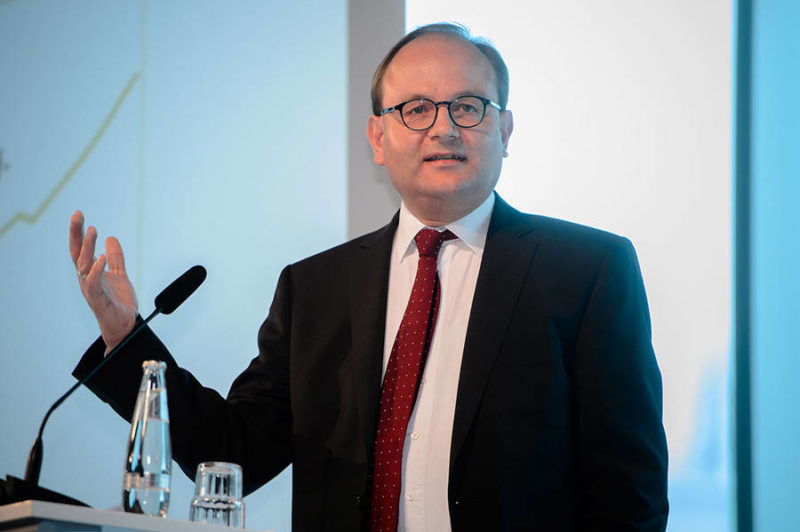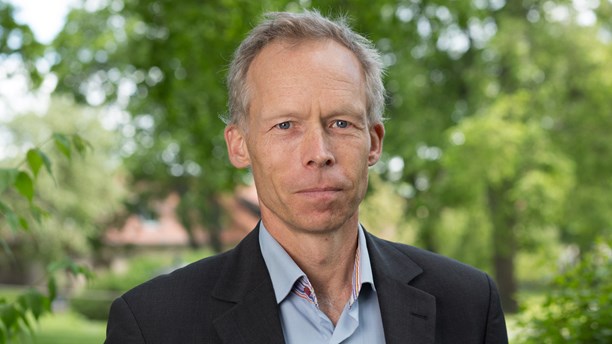In an apparent move to reinvent itself, the Potsdam Institute for Climate Impact Research (PIK) is appointing a twin leadership bringing together natural sciences and social sciences stronger than ever.
In late September, the German climate economist, Ottmar Edenhofer, and the Swedish Earth system scientist, Johan Rockström, will become directors of the internationally renowned institute, which is a member of the Leibniz Association. This was decided on Friday, February 23, 2018 by the institute’s Board of Trustees, headed by the Brandenburg Ministry of Science, Research and Culture and the German Federal Ministry of Education and Research.


The retirement of the founding director, Hans Joachim Schellnhuber, this autumn after a quarter of a century as the head of the institute marks the beginning of a new era in Potsdam.
“I am delighted that we could win over Ottmar Edenhofer and Johan Rockström, two internationally highly recognised researchers, to become the new Co-Directors of the Potsdam Institute for Climate Impact Research. This allowed us to bring the process of determining a successor for the long-standing Director Hans Joachim Schellnhuber to an excellent end. Today’s decision by the Board of Trustees brings reliability for planning PIK’s future,” said the Chair of the Board, Carsten Feller from Brandenburg’s Ministry for Science, Research, and Culture.
Global Commons and Planetary Boundaries
The twin leadership of the more than 300 employees of PIK prepares the institute for the next level of interdisciplinary achievements in climate impact research for global sustainability, and reflects the research strategy of the two new directors, who will lead the institute on an equal footing.
“In an unprecedented way, we are bringing together two complementary approaches: The concept of the Planetary Boundaries with the concept of Global Commons,” says Ottmar Edenhofer. “We thereby combine risk research and solutions research, from the local to the global scale.”
Johan Rockström adds: “World development now depends on safeguarding the stability of the entire Earth system, and a safe operating space for humanity on Earth can only be met if the atmosphere, oceans and forests are managed sustainably as a common asset for all people on our planet. Fundamentally, global environmental risks translate into climate impacts, and climate stability depends on reconnecting human societies with the Earth system. PIK is in a unique position as a world leading interdisciplinary climate impact and global sustainability science institute to address this challenge.”
The climate physics and energy economic computer simulations at PIK are to be increasingly supplemented in the coming years by the use of artificial intelligence to analyse complex dynamic processes as well as big data as can be found in satellite observations and ice drilling cores, but also in financial markets and social media such as Facebook.
“Schellnhuber as pioneer, for Potsdam and the planet”
“For all our enthusiasm for the new challenges, we are deeply and permanently indebted to a pioneer of earth system research – Hans Joachim Schellnhuber, who has done phenomenally groundbreaking work, for Potsdam and for the planet,” said Rockström and Edenhofer. “He is not only a world-renowned top scientist, but more than that: a great thinker; and a man who cares deeply about the fate of those who will suffer most from climate change. We are very glad that we can continue to count on his support in the future.“
Schellnhuber himself expressed his satisfaction with the decision of the Board of Trustees. “I am very glad that we can assure a world-class successorship with these two brilliant scientists and outstanding leaders. By establishing this twin directorate of social and natural sciences, PIK will once again prove to be a pioneer in the international research system. The complex problems of the modern world require innovative management structures, and this is what we’re creating.”
“PIK on the international top level”
Rockström, 52, is currently Director of the Stockholm Resilience Centre (SRC) at Stockholm University in Sweden. Before he started doing research on the planetary scale, he worked for many years on water scarcity and resilience in tropical countries. He will be maintaining a close link to the Stockholm Resilience Centre, strengthening the scientific collaboration between SRC and PIK.
Edenhofer, 56, is currently Chief Economist at the Potsdam Institute for Climate Impact Research. He will remain Director of the Mercator Research Institute on Global Commons and Climate Change (MCC), founded by Mercator Foundation and PIK.
“The MCC is a pioneer in research on global commons. Through intensive cooperation with the MCC, PIK can strengthen its expertise in the social sciences without losing its core competence in the natural sciences,” says Edenhofer. In the coming years, PIK and MCC intend to intensify their cooperation, especially in the further development of scientific policy advice, which complements basic research.
“The foresight and vision of Hans Joachim Schellnhuber more than 25 years ago to build up an institute to explore the effects of climate change, and to make it reach the international top level, deserves our greatest thanks and deepest respect,” says Matthias Kleiner, President of the Leibniz Association. “Because today, climate change and its impacts are one of the biggest challenges for humanity. Climate Impacts Research relies on the cooperation of many different scientific disciplines. This is a core characteristic of Leibniz institutes, and it is incorporated by the new joint co-leadership of PIK with the economist Ottmar Edenhofer and the environmental systems scientist Johan Rockström. I am convinced that PIK under the new leadership will continue to excellently fulfill its mission of not just doing research on climate change, but based on scientific findings give advice to policy makers and society. For the better of us all.”
